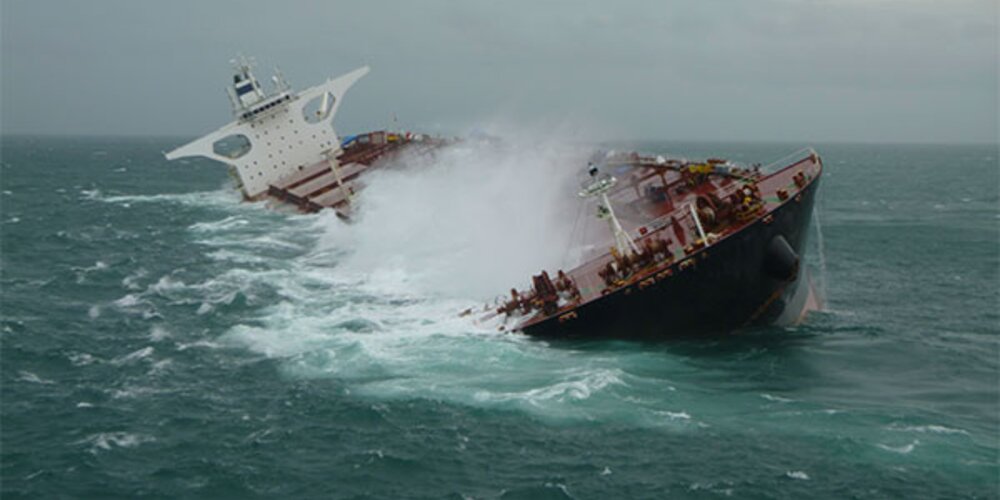Browse our services
Explore how Brookes Bell can help you
Find an expert
Meet our team, find and expert and connect
Contact us
Get in touch, we're here to help

The long awaited Hong Kong Convention - which is intended to address several long-standing issues concerning ship recycling - has successfully been ratified and is expected to come into force in June 2025.
The Convention, which has the formal title the Hong Kong International Convention for the Safe and Environmentally Sound Recycling of Ships, aims to ensure that when ships are recycled they don’t pose an unnecessary risk to human health, safety or the environment.
In effect, the Hong Kong Convention adopts a ‘cradle to grave’ approach to ship recycling.
Regulations included in the Convention, include:
As part of these regulations, ships sent for recycling will be required to carry an inventory of hazardous materials.
According to a statement released by the International Maritime Organisation (IMO), ‘an appendix to the Convention provides a list of hazardous materials, the installation or use of which is prohibited or restricted in shipyards, ship repair yards, and ships of Parties to the Convention. Ships will be required to have an initial survey to verify the inventory of hazardous materials, renewal surveys during the life of the ship, and a final survey prior to recycling’.
Additionally, shipyards will be required to provide a ‘Ship Recycling Plan’ which will specify the manner in which each individual ship will be recycled.
The ratification of the Hong Kong Convention comes a full 14 years after it was first adopted by the IMO.
Bangladesh - one of the world’s biggest ship recyclers - along with the Liberian Registry (the world’s second-largest registry), ratified the convention this month, paving the way for its implementation.
So, why has it taken so long for the Convention to be ratified? The answer lies in the need for the Convention to achieve a certain level of support and meet defined criteria.
Entry into force hinged on having at least 15 participating States, representing no less than 40% of the world’s merchant shipping by gross tonnage, and a ship recycling capacity of at least 3% of their combined gross tonnage.
At the time of writing, the Hong Kong Convention has the participation of 22 ‘contracting parties’, including; Bangladesh, Belgium, Republic of the Congo, Croatia, Denmark, Estonia, France, Germany, Ghana, India, Japan, Liberia, Luxembourg, Malta, the Kingdom of the Netherlands, Norway, Panama, Portugal, São Tomé and Príncipe, Serbia, Spain, and Turkey.
Commenting on the successful ratification of the Hong Kong Convention, John Stawpert, Senior Manager (Environment and Trade) of the International Chamber of Shipping, said:
“It is overwhelmingly positive for the shipping and recycling industries, and the environment that the Hong Kong Convention has now entered into force following the most recent confirmation of ratification from Bangladesh and Liberian Registry, a move that the International Chamber of Shipping have championed for 14 years.
This marks a sea change for this global industry and confirms that in the near future shipowners will be confident that their vessels will find a safe and environmentally sound destination for recycling. The importance of the Convention entering into force, and what it means for ship recycling worldwide cannot be underestimated.
Entry into force confirms the huge progress made in safe and environmentally sound ship recycling that has been driven by the Convention since its adoption in 2009 and realises the globally compliant market into which ships must now be sold, giving shipowners confidence and legal certainty that end-of-life vessels will be recycled properly”.
David Loosley, Secretary General & CEO of BIMCO - the world’s largest shipping organisation - commented:
“14 years ago, 63 nations adopted the Hong Kong Convention. Bangladesh and Liberia have paved the way for the convention to enter into force. This commitment from Bangladesh and Liberia is more than just a step in the right direction, it is a leap that will benefit the environment and workers in the ship recycling industry.
The Hong Kong Convention entering into force means that a fully sustainable ship-recycling industry is possible and within reach”.
Unfortunately, ships sometimes become involved in marine casualty events. And, in recent years, these marine casualty events have become bigger and more complex.
As vessels have become supersized, wreck and removal operations have become supersized too.
If you’re dealing with a marine casualty event, then Brookes Bell can help.
Our salvage and wreck services include (but are not limited to); on-site surveys and damage assessment, structural modelling, and quantitative and qualitative risk assessments. We are also able to act as Special Casualty Representatives (SCRs) for Lloyd’s Open Form (LOF)/Special Compensation P&I (Protection and Indemnity) Club Clause (SCOPIC) contracts.
For more maritime industry insights and information, read the Brookes Bell News and Knowledge Hub…
EU Proposes New Pollution and Safety Targets for Shipping | Reduction in Containers Lost at Sea in 2022 | Industry Safety Body Calls for the Lifeboat to Be ‘Reinvented’